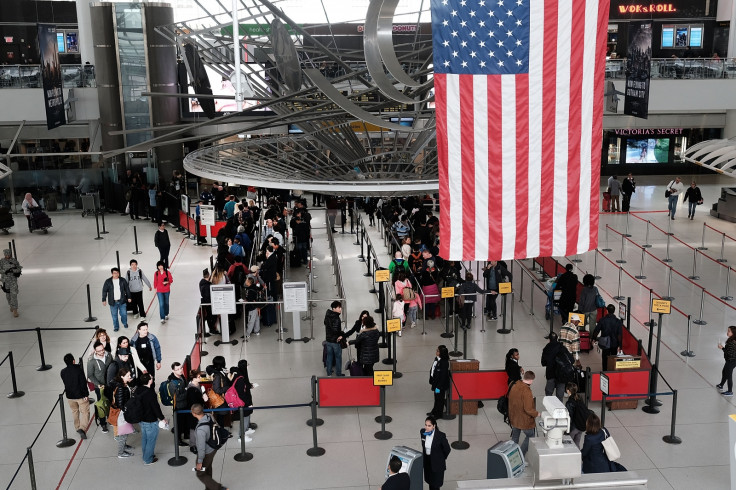Donald Trump's travel ban has backfired - Mexican passports could soon be worth more than American
If the EU withdraws visa-free travel then US passports will drop from third to 26th in global rankings.

The tit-for-tat passport wars between the European Union and the United States caught fire last week when the EU Parliament voted to impose restrictions on US visitors. The EU is angry that the US still has not introduced the US Visa Waiver scheme for citizens of Bulgaria, Croatia, Cyprus, Poland and Romania. While this dramatic move will need ratification from the European Commission, the mood is souring and may have severe consequences.
The US passport is currently the third most powerful passport in the world according to the 2017 edition of the Passport Index, Arton Capital's global ranking of the world's passports. Losing visa-free travel to all of Europe's member states may send the US passport in a freefall all the way to 26th rank, or way below that of Mexico, which is currently ranked at 22nd place with a visa-free score of 130.
That would be an ironic turn of events, though perhaps President Donald Trump's voters will not care too much, as many of them don't even possess a passport.
Europe, with its 28 member states and related countries, holds a strong influence on the passport power ranking. But if US imposes visa on all EU members, their rating they will drop too, and Singapore may take the lead spot of the most powerful passport in the world for the first time.
At the moment Germany has the strongest passport in the world, with its citizens able to visit 158 countries in the world without the need to apply for a visa first. Sweden and Singapore, are second equal.
This rather dramatic turn of events epitomises what many people are calling an 'Age of Uncertainty'. Some people are even abandoning their US passports.
According to Andrew Mitchel LLC, a Connecticut-based law firm, last year more than 5,400 people renounced their American citizenship, setting a new annual record and a 26% increase from 2015. These people are often seeking instead citizenship – and a passport – from one of six Caribbean islands that run citizenship-by-investment programmes, partly for tax purposes but also because they offer visa-free access to the United Kingdom and Europe.
Having been a driving force behind the citizenship by investment sector for a decade, I am now focusing on strategic issues such as the future of citizenship, global immigration, and best industry practices.
The world and our global society is going through profound changes. Technology and a new generation are rethinking the global economy, identity, and how individuals connect with each other. The citizenship by investment sector is a new one and the leaders in the sector have a responsibility, as well as an opportunity, to act wisely.
I strongly believe that the world is stronger from globalisation, and weakened by protectionism.
The world's direction is as uncertain as at any time since the fall of the Berlin Wall nearly 30 years ago. Assumptions that have been held true for decades have turned out to be hollow. We are in an era of fake news, technological advances, cyber threats, conflict, and man-made dangers. We are faced by seemingly accelerating risks and opportunities.
I strongly believe that the world is stronger from globalisation, and weakened by protectionism. The Passport Index that my company produces is a real-time benchmark for ranking of the world's passports. The online service allows people to explore all the passports of the world and learn more about their rank, power and even colour.
A cynic might dismiss this as a colourful marketing tool. I would say that it is a dramatic indicator of how quickly geo-politics can change, leaving individuals at the mercy of bureaucrats, every bit as desperate as the characters in the film Casablanca, who will do anything to get their hands on the letters of transit and escape to the security of the New World.
Owning a second citizenship has never been more valuable. This time round, though, the direction of travel may be from the West to the East, particularly if Singapore becomes the possessor of the world's most powerful passport.
Armand Arton is the president of Arton Capital, and an ambassador of the global citizen movement. He is on a year-long quest to discover what it means to be a global citizen.
© Copyright IBTimes 2025. All rights reserved.






















